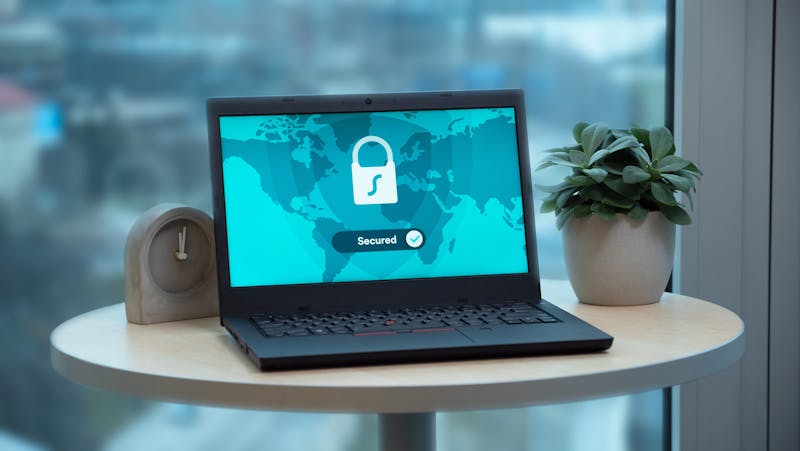Cyber Security Checklist for Businesses
In the last 12 months, 32% of businesses in the UK reported a cyber attack. An estimated £21 billion is lost every year in the UK to cyber crime. The ubiquity and the cost of cyber crime demands that organisations make cyber security a top priority, especially when we are only becoming ever more reliant on technology to operate.
While there is no fool-proof way of preventing all cyber crime, there are steps you can take to mitigate the risks. Review our cyber security audit for businesses to make sure that you are ready for every cyber threat.
Password Policy
Strong cyber security starts with the most basic line of cyber defence — the password. It’s the simplest deterrent to cyber attacks, and something that your average worker can understand. The problem comes when you do not have a set password policy for the entire organisation to follow.
Establish a password policy that requires staff to create complex passwords and change them regularly. Best practice is to use a combination of randomised uppercase and lowercase letters, numbers, and special characters, and to avoid using personal information that could be guessed based on the user.
Antivirus Software
Cyber attacks can come in the form of malicious software such as viruses and malware. While humans are ultimately responsible for blocking the vectors through which viruses and malware can access devices and networks, they may still fail to do so. Antivirus software is the layer of protection that prevents viruses and malware from doing further harm.
Update your antivirus software as soon as possible to protect your network from the latest trends in cyber crime. Don’t hesitate, as the gap between an older version and the current version of your antivirus software can be just wide enough for a new virus to squeak through.
Email Security
Email is an integral part of the everyday workflow for so many office jobs, making it a prime target for cyber criminals looking to illegally access business networks. There are so many different methods of cyber attacks on email, from phishing to identity spoofing to social engineering, that it is crucial that you have rock-solid email security.
Installing email filtering is a good first step to securing your email, as it will weed out the most obvious suspicious emails from even getting the attention of your staff. Encrypted email servers can mitigate the risk of having important messages intercepted or deciphered by hackers. Employees need to be trained to spot the signs of a malicious email as well.
Endpoint Detection and Response
Endpoints are the devices that your staff typically use to do their jobs, whether it’s their desktop PC, laptop, or mobile phone. Such devices are where cyber criminals are most likely to gain access to your network. The rise of remote work has only made this a more imminent threat, as workers may use their personal devices to interface with your company’s private network, or use company property in their less-than-secure home internet.
Utilise endpoint detection and response technology to immediately alert you of any threats to the endpoints connected to your network. It also allows you to restore compromised devices to their previous state.
Cloud Storage
It may feel as though your important documents are more secure when they are stored in hard drives that are physically within your reach. However, you actually increase the security risk of all your valuable data being hacked, stolen, or destroyed by keeping it with you or within business premises.
Take advantage of the cloud to store and backup your sensitive data while benefiting from ease-of-access for all credentialed parties. You don’t have to worry about maintaining a physical hard drive that can experience hardware failure. Cloud storage providers also boast a host of top-shelf enterprise-level security features that you may not be able to afford.
Data Breach Response Plan
Even with all the security measures you put in place, there is no 100% guarantee that your business is completely safe from a cyber attack. Prepare for the possibility of getting hacked with a thorough data breach response plan.
Such a plan should start with implementing containment methods as soon as possible to minimise the scope of the breach. Recovery is the next step, which would require careful deployment of trusted staff to maintain and update the plan to restore data and critical systems. Monitor communications to ensure no one is compromised.
Following the data breach, conduct an investigation to discover how the breach happened. Document the process so that you can learn from the situation. Communicate with staff and other affected parties such as customers to inform them of the damage and to assure them that you are doing the utmost for their security.
Staff Training
88% of data breaches are caused by employee mistakes. No matter how multi-layered or sophisticated your cyber security measures may be, your entire network is still most likely to get compromised due to human error.
Minimise the chance of an employee opening up your company to a cyber attack with staff training on cyber security. A basic course on identifying common cyber crime methods such as phishing and ransomware is a good jumping off point.
Professional Cyber Security Services
Having a cyber essentials checklist is a simple but highly effective way of making sure you are covered on all fronts from cyber attacks. However, you may still find your company overwhelmed by everything you need to cover to stay safe, especially when you don’t have experts in your organisation.
Get professional cyber security services for maximum protection. EvolvIT offers a full suite of cyber security solutions backed by years of experience. We can take care of all your cyber security needs for your peace of mind. Contact us today to get started.






